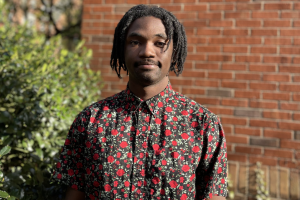"Medical Anthropology is the study of the human experience of illness and suffering and how that
experience is shaped by social, political, and cultural elements. This project allowed me to see
that our current HIV disparity in African Americans is a combination of destruction to our medical
safety net, mass incarceration, racial attitudes regarding African American behaviors, and
values of deservingness.
In my class ANTH 1315: Race, Racialization, and Health, I learned about how the history of the
medical profession is intertwined with histories of race and white supremacy. I learned about
common racial myths employed in clinical medicine, race correction in algorithms, the effects of
politics on the agency of racialized groups, and the ways race operates in medical education.
For my semester project, I examined the racialized health disparity of HIV in the African
American community. I discovered that African Americans account for 42% of the nation’s HIV
cases, despite only being 14% of the population. I also discovered that only 14% of our federal
prisons conduct routine HIV testing at the level recommended by the Center for Disease Control
and Prevention.
90% of Incarcerated African Americans are uninsured when they return to their communities.
Also, African Americans live in states where Medicaid is unable to cover preventative HIV
screenings and access to PrEP due to the lack of Medicaid expansion, which extends insurance
coverage to citizens who originally would be ineligible for it. I was also able to examine the
African American HIV disparities during the 1980s and 1990s HIV/AIDS epidemic and how
Medicaid budget cuts contributed to the disparity we have now.
I wrote a policy brief urging Alabama state legislatures to approve Medicaid Expansion,
analyzed diagnosis protocols for PrEP in Federal Prisons, and wrote an advocacy statement
that explores the connection between African American HIV health during the 1980s and now."
